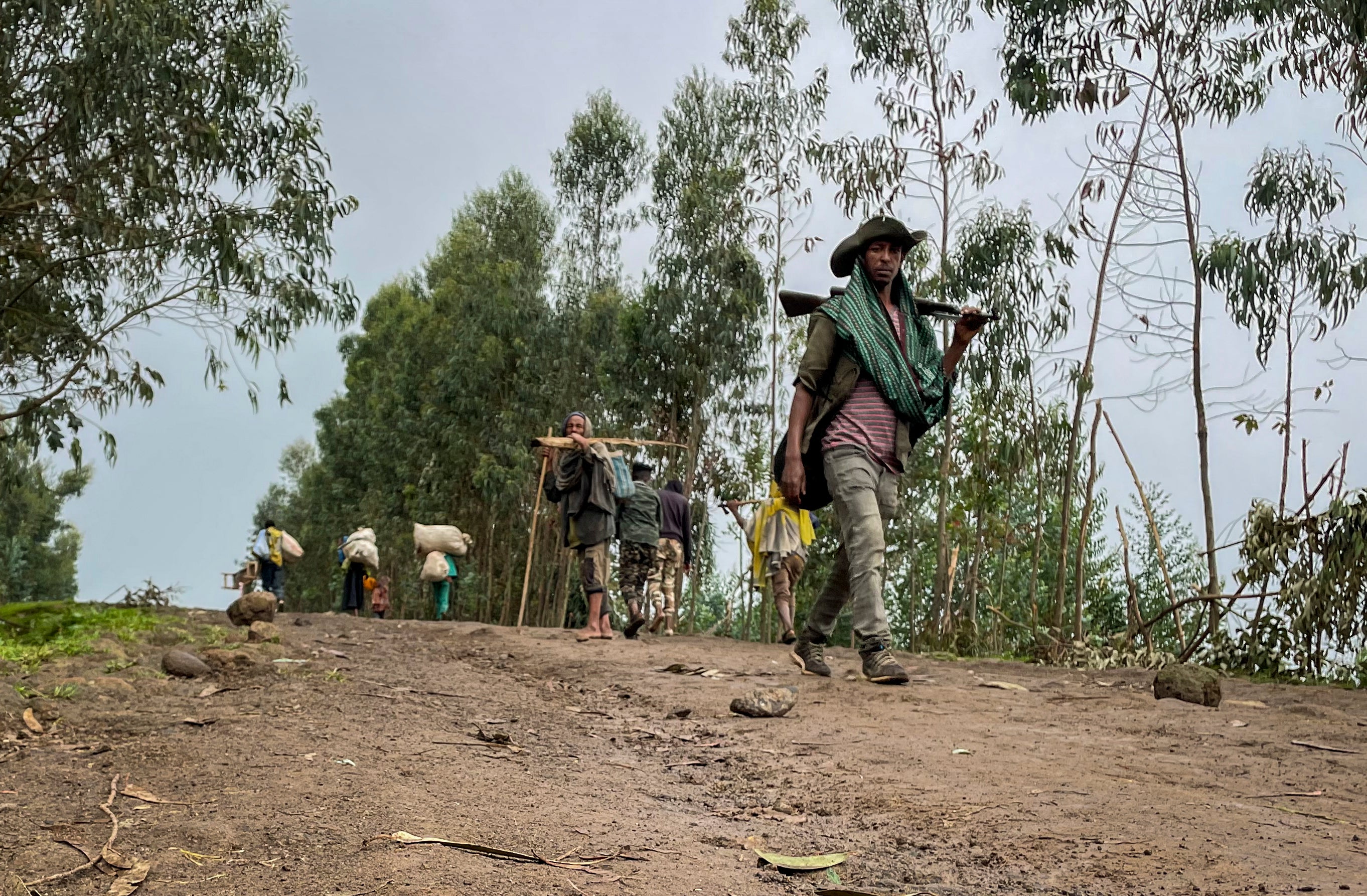US threatens sanctions against officials in Tigray conflict
The White House is threatening to impose sanctions against Ethiopian Prime Minister Abiy Ahmed and other leaders involved in conflict in the Tigray region

Your support helps us to tell the story
From reproductive rights to climate change to Big Tech, The Independent is on the ground when the story is developing. Whether it's investigating the financials of Elon Musk's pro-Trump PAC or producing our latest documentary, 'The A Word', which shines a light on the American women fighting for reproductive rights, we know how important it is to parse out the facts from the messaging.
At such a critical moment in US history, we need reporters on the ground. Your donation allows us to keep sending journalists to speak to both sides of the story.
The Independent is trusted by Americans across the entire political spectrum. And unlike many other quality news outlets, we choose not to lock Americans out of our reporting and analysis with paywalls. We believe quality journalism should be available to everyone, paid for by those who can afford it.
Your support makes all the difference.The White House on Friday threatened to impose sanctions against Ethiopian Prime Minister Abiy Ahmed and other leaders involved in a conflict gripping the Tigray region, where 10 months of fighting have left hundreds of thousands of people facing famine.
A new executive order allows the U.S. Treasury Department to sanction leaders and groups seen as fueling the violence if they don't take steps soon to stop the fighting. Senior U.S. officials who previewed the order Thursday said that while it does not set a deadline on the leaders, they wanted to see progress made toward a cease-fire in the coming weeks. But the U.S. officials, who spoke on condition of anonymity to discuss White House strategy, said they were not optimistic Abiy would change course.
The 10-month conflict in Tigray has grown from a political dispute into a more serious war threatening stability in Ethiopia, the second-most populous country in Africa and a key U.S. security ally in the region. The fighting, which involved various forces and soldiers from neighboring Eritrea has triggered the world's largest hunger crisis in a decade.
The U.S. and United Nations say Ethiopian troops have prevented passage of trucks carrying food and other aid. Scores of people have starved to death, The Associated Press has reported.
U.S. officials said Thursday that just 10% of humanitarian supplies intended for Tigray have been allowed into the region during the last month.
As the situation deteriorates, Biden’s executive order gives the Treasury and State departments authority to impose sanctions against leaders of all sides in the conflict — the Ethiopian and Eritrean governments as well as the regional forces in Tigray and Amhara. The Treasury Department will exempt humanitarian efforts from any potential sanctions.
Previous U.S. pressure on the combatants has failed. A U.S. announcement in May of visa restrictions against Ethiopian and Eritrean officials was dismissed by Abiy's government as an effort to “meddle in our internal affairs.”
U.S. officials who spoke Thursday called on Abiy to show he would move toward a settlement before the new Parliament is seated on Oct. 4 following his party's landslide victory in July. He now has a new five-year term. No voting was held in the Tigray region.
The war has the potential to fracture Ethiopia just a few years after Abiy moved to resolve the country’s decades-long conflict with neighboring Eritrea.
The U.S. officials expressed concern that Abiy will press for a military success to present to lawmakers when the new government is formed on Oct. 4. His government’s recent call for all able citizens to join the fight and stop the Tigray forces “once and for all” caused some international alarm.
Since retaking much of their embattled region from Ethiopian forces in June in a dramatic turn in the war, the Tigray forces have brought the fighting into the country’s neighboring regions of Afar and Amhara. The Tigray forces say they are pressuring the government to lift a blockade on Tigray that has left millions of people without telecommunications, electricity, banking services and almost all humanitarian aid.
Now the massive humanitarian crisis that affects millions inside Tigray is spreading as hundreds of thousands of people in Amhara and Afar flee the Tigray fighters, some alleging retaliatory attacks, which the Tigray forces have denied.
Abiy won the Nobel Peace Prize for restoring ties with Eritrea but has since joined forces with Ethiopia’s former enemy to wage war in Tigray. Eritrean soldiers have been accused by witnesses of some of the war’s worst atrocities. Now they are active again inside Tigray, after pulling back in June when Ethiopian forces retreated.
___
Associated Press journalist Cara Anna in Nairobi, Kenya, contributed to this report.